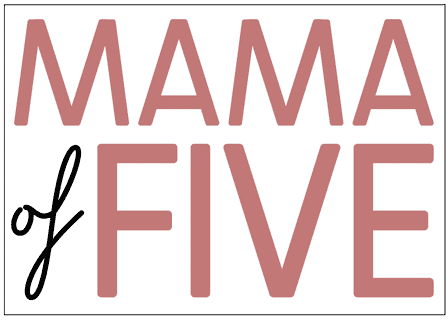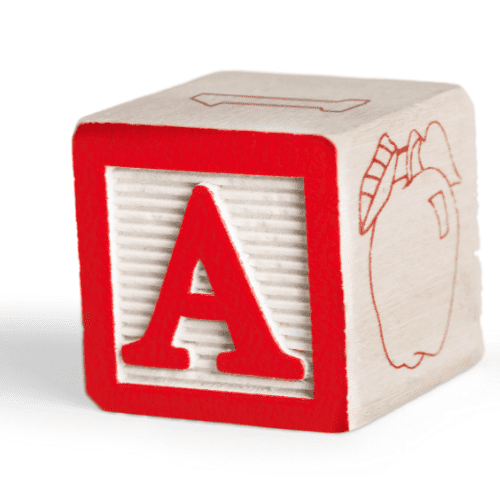Middle names are a special addition to your name and the perfect way to show off your personality. Genevieve is a French name meaning “young girl.” It has seen a recent surge in popularity, and it’s easy to see why. The name is classic, sophisticated, and elegant.
Genevieve is a very popular girl’s name in America, so we have made it easier for you by listing some of the most common middle names that go with this moniker. In this post, we will talk about the different middle names you could give your child if they are named Genevieve.
150 Middle Name Ideas For Genevieve
A
Adeline
This feminine name has Latin origins, and it means “noble.”
Agnes
This name is a Latin variation of the Greek word Agape, meaning “love.”
Alana
This moniker is of Hebrew origin, and it stands for “joyful or happy one.”
Alexandra
This name is of Greek origin, and it means “protector of man.”
Alicia
This name is of Spanish origin, and it means “noble.”
Amara
This name comes from the Latin word Amar meaning “to love.”
Amelia
This name is derived from the Germanic word Amaliricus which essentially means “work strength.”
Amira/ Amirah
The first variation of this middles’ name comes with Arabic roots that mean princess or noble, while its second form Amira derives from Greek words amir, which means prince. Both variations have a similar connotation, but each makes its statement as well!
Anastasia
This middle name has its origins in the ancient Greek language. It meant “resurrection” or “rebirth.”
Annabelle
This French baby girl’s name can be traced back to middle ages France. It has Latin origins, and it stands for “grace” or “beautiful one.”
Anne
This is a French variation of Anna’s Latin name, meaning “grace” or “favor.”
Anissa
This variant on Aisha is derived from Arabic, meaning “life” or “Alive.”
Alyson
Derived from French Alisun, which may mean all dance, this moniker often appeared during medieval times but became particularly popular in 20th century America when it was used as the title character played by Brooke Shields in the 1980s hit movie, Pretty Baby.
Ashley
This middle name is of Old English origin, and it means “ash-tree clearing.” Ashley was also used as a boys’ name until the late 1960s.
Audrey
This middle has its origins in Latin language, meaning “noble strength” or “strength.”
Aurora
This pretty baby girl’s name hails from the Spanish word meaning “dawn.”
B
Bailey
This middle name is of Old English origin, and it means “bailiff.”
Beatrice
Derived from the Latin word Beatrix, which derives from Greek words meaning “bringer of joy.”
Belinda/Bella
Belinda stems from the Italian middles’ names Bellina or Bellanda with similar meanings as a beautiful lady, while Bella has Hebrew origins deriving from bealeh, meaning “to bless.” Both are pretty middles’ names that make a statement on their own!
Bernice
This middle name is of Greek origin, and it means “bringer of victory.”
Beth
This name is a short form of Elizabeth and means “consecrated to God.” It was popularized by the character Beth March in Louisa May Alcott’s Little Women.
Bridget
A Celtic, Irish girl’s name meaning strong or honorable; associated with its patron saint Bridget of Kildare, who later became known as St. Bride (St Brigid).
Brittany
This middle name has Latin origins, derived from Britannia, which was once the all-encompassing term Britain used by Roman invaders in ancient times. You can trace it back to Celtic roots meaning “the land where the seas meet.”
Brooke
English origin, which could mean “ditch,” may be derived from Old English for brook, stream. Name enjoyed popularity when American actress Brooke Shields used this moniker for her acting career during the 1970s through 1990s.

C
Caitlin
The feminine form of Cateline/Catelyn, this moniker is of Irish origin and may mean “pure.” This name can be spelled with either a “K” or a “C.”
Candace
This middle name is of Greek origin, and it means “heavenly.”
Caroline’s middle names have Germanic, Latin origins. It means “free man” or “strong and powerful.”
Carolyn
French variant on Caroline that originated in Latin Carmen, meaning “song.” The endearing nickname “Carrie” is associated with this name.
Catherine
This French moniker which can be traced back to the Greek Aikaterine, meaning pure or holy, comes from the mother of Constantine. She was canonized as St Catherine in the fourth century by Eastern Orthodox Church. The traditional nickname for Catharine is Kate.
The feminine form of Charles means free man. Charlotte Bronte popularized it in her 1847 novel Jane Eyre. A French feminine variant of Charles, this moniker means “free man.”
Christina
Latin origin, feminine form of Christinus (meaning anointed). Popularized by Christina Rossetti’s most famous poem Goblin Market; also used as a character name in The Phantom of Opera storyline and film produced during the early 1980s through the present time.
Christine
English middle name with its roots in Greek language and means “follower of Christ.”
Claire
Middle name with French origin and it means bright, shining one.
Clarissa
This middle name has Latin origins meaning “bright” or “clear.” Clarissa was popularized by Samuel Richardson’s novel Clarissia: Or, The History of a Young Lady.
Claudette
This middle is derived from Claudius and means lame.’ It became commonly used during medieval times when frequent leprosy outbreaks caused people to become physically disabled. Today this moniker is associated with French actress Claudette
Colleen
This middle name is of Irish origin, and it means “girl” or “young girl.” It was used as a derogatory term for an adult woman during the early 20th century but became popularized by its use on a radio show called Big Sister, which first aired in 1937 and ran until 1954.
Cordelia
Derived from Germanic elements meaning heart and battle, Cordelia was used by Shakespeare twice: once as King Lear’s youngest daughter and again as a disguised character who falls in love with Duke Senior in As You Like It.
Courtney
This middle has English origins, and its meaning is derived from Old French word Courtenay, which originally meant someone who came from court land .”
Cynthia
Derived from Greek Kynthos, meaning “pointed mountain peak” or “lover of the bow.”
D
Daisy
This English name has come to represent a flower and is also used as a nickname for Margaret. During medieval times Daisy was known as maudelayne, which meant “daisy.”
Debra
Middle English means “gazelle.”
Delia
Middle English middle name derived from Greek word Delos, which means “light.”
Delilah
This middle name has Hebrew origins meaning “seductress,” as the Bible story Samson & Delilah is the character.
Donna
This Italian variation of the Latin Domina, meaning lady or mistress, has been used as an independent first name since the late 20th century. It remains especially popular among Italians living abroad.
Dorothy
This name is a Greek baby name meaning “gift of God.” It has been associated with the American poet Dorothy Parker since her birth in 1893.
Are online birth classes worth it?
E
Derived from Germanic elements meaning universal rule combined with noble, this moniker means “universal ruler.”
A Hebrew girl’s name, meaning my God is abundance. Elizabeth I ruled England during the late 1500s through the early 1600s, who united Protestant supporters together with Catholics under her rule but had several issues, including war in Spain that led to the execution of Mary Queen of Scots.
Emma
Jane Austen’s novel popularized a Germanic girl’s name meaning universal all, this moniker during the late 1700s through early 1800s about Emma Woodhouse, whose good intentions led to unexpected consequences. It is currently ranked among the top five most popular girl names in England and Wales, according to the Office for National Statistics.
Estelle
This middle name is of Latin origin, and it means “star.”
Esther
This Hebrew baby name means “star.” Biblical figure Esther found favor with King Ahasuerus, who made her his queen. At the same time, she remained loyal to the Jewish people despite being surrounded by danger from royal court officials who were plotting their demise, which occurred when the Persian army attacked them upon the king’s death.
Eugenie
This middle name has French roots, meaning well-born. Its use as a middle first name was inspired by Queen Victoria’s daughter Princess Eugenie Louise Marie Beatrice.
Evangeline
This middle originated from the title character in Longfellow’s epic poem Evangeline: A Tale of Acadie, published in 1847. The word itself comes from the Greek language term euangelion, which means ‘good news.’ It also represents ”the gospel” or ”glad tidings.”

F
Fausta
This middle name is derived from Latin origins, and it means “auspicious.”
Faustina
This middle name is derived from Latin origins, and it means “auspicious.”
Febe
This middle name is derived from Latin origins, and it means “white, bright.”
Felicity
This middle name is derived from Latin origins, and it means “happiness.”
Fiona
This middle name was popularized by 20th-century poet James Elroy Flecker who wrote about the character of Fiona MacLeod.
Flavia
This middle name has a Roman origin, meaning yellow hair.
Flora
This middle was inspired by the title character in Shakespeare’s play The Tragedy of Julius Caesar, portrayed as a young girl loved by Roman Marcus Brutus and Gaius Cassius before her death during the civil war between Mark Antony and Octavian. Also, this moniker has Roman roots representing the goddess of flowers.
Francesca
Its middle originated from the Middle French language term françoise, which originally meant “french woman.” It also represents a “free one” or libertine.
G
Georgia
Derived from the Greek term georgos which meant farmer or earth worker. Notable ladies with this moniker include American socialite Georgia O’Keeffe and American novelist Georgia Bockoven. ‘
Gertrude
This middle originates from Germanic Gertrauda, meaning “the spear of fame.” It also represents a character in Shakespeare’s Hamlet.
Grace
This Latin baby name means “grace.” It has been used since the 13th century when it appeared in Edmund Spenser’s epic poem The Faerie Queene.
The One Essential Baby Item I Didn’t Think I Needed
H
Harriet/Hattie
Derived from an Old English name meaning fullness combined with mother, this moniker can be traced back to Harriet Beecher Stowe. The latter wrote Uncle Tom’s Cabin in 1852 about slave life in the Southern United States before the Civil War.
Helen
Derived from the Greek word for brightness, this moniker was popularized by Helen of Troy, who made men fight over her beauty with disastrous consequences. It is also the given name of the beautiful wife of Menelaus in Homer’s Iliad.
I
Iris
Iris is derived from one of Zeus’ lovers named Arke (meaning rainbow), whose tears turned into irises when she died. In ancient Greece, these flowers symbolized messages between deities and mortals; they are closely associated with several goddesses such as Hera (Juno) and Aphrodite (Venus).
Isabella
Derived from Visigothic meaning “pledged to God.” Popularized by Queen Isabella I during medieval times, who funded Christopher Columbus’ voyage across the Atlantic Ocean in 1492 leading to European exploration and settlement of the Americas (modern-day North America).

J
Jacqueline
This middle originated from Jacob’s biblical name, “supplanting,” combined with the Greek term phelon, which meant to embrace.
Jeanne
Derived from Latin Johannes, meaning “God is gracious.” Jeanne D’Arc, or Joan Of Arc, was a French peasant girl who led armies against English occupation during medieval times when she was burned at stake for heresy in 1431.
Jenifer
A rare variant of Jennifer comes from a Hebrew girl named Jehanevea, meaning “He (God) has favored me.”
Joan/Jean
This Cornish variation of Jane means God has been used as a name for both genders since Middle Ages when Saint Joan Of Arc popularized it; nicknamed la Pucelle (“the maid”)
Josephine
Derived from the Latin name Joseph which means God shall add—popularized by Napoleon Bonaparte’s first wife, Empress Josephine, during the early 19th century.
Judith
This middle name has Hebrew origin, and it is a form of Yehudit, meaning “Jewish woman.”
Juliet
This middle name comes from the Shakespearean play Romeo And Juliet written around 1595 about two teenage lovers whose untimely death altered both families forever. In real life, this middle name was popularized by Italian saint Giulia di Bologna who lived during the 16th century.
K
Katherine
Derived from the Greek term Aikaterine, this middle name may refer to Saint Katherine of Alexandria, who was martyred in the early Christian church by being burned alive on a spiked wheel after rejecting a marriage proposal.
The best FREE online birth class
L
Lauren
This middle name is a variant of Laura, which originated from the Italian language, meaning laurel crown or victory, and Greek term doleros, which means sorrowful.
Lavinia
This middle originates from the Italian language Lavine that represented women born on Saturday because it coincides with a pagan festival dedicated to Saturnus.In Roman mythology, Lavinia was the daughter of Latin King Latinus and wife to Aeneas, who founded a Rome settlement.
Lilith
According to apocryphal Jewish texts, Lilith was Adam’s first wife before Eve. She grew tired of being subservient and flew away where angels gave her wings but no protection, resulting in losing their children through miscarriage every year after marriage with Adam because he refused to procreate with her anymore.
Lillian
Derived from Germanic meaning “lily,” this middle name came into usage with British writer Charles Kingsley’s 1855 middle novel ”The Water Babies” in which the protagonist’s mamma is named Lily.
Lily
Derived from the flower name, it became popularized by American writer Mark Twain. He used it as the middle name of one of his characters, namely Rose Budd in The Notorious Jumping Frog Of Calaveras County.
Lucille
This French feminine variation of Lucius means “light.”
Luisa/Louise
This moniker has been used as an independent first name since the late 19th century when it appeared in George Meredith’s novel The Egoist.
Lydia
This middle name has its origins as a placename, Lydia, now known as Turkey. It became popular during Victorian times when it appeared in Charles Dickens’ novel The Pickwick Papers and Charlotte Brontë’s Jane Eyre. It can be associated with British reality TV star Lydia Bright from the TOWIE series in the modern context.
M
Mabel
Derived from Old French mabeul, meaning maimed or mutilated, this moniker has been used since the late Middle Ages.
Madeline
This moniker appears twice in Shakespeare’s play Romeo And Juliet; both characters were named Madeline neither could have been heroine- Madeline Capulet and her nurse.
Margaret
Derived from Latin mare (meaning sea) and Greek aggeo, meaning to bear, this name is often associated with the Virgin Mary. However, it was also used by Chaucer in his Canterbury Tales. It has remained popular ever since.
Mary
Given exclusively as the first name in English-speaking countries for centuries, Mary comes from Hebrew Miriam– but there are several stories about its origin. The most common explanation involves the Egyptian city of Alexandria, where ancient Egyptians worshiped Isis.
Martha
This name is derived from Aramaic, meaning “lady” or “mistress.” It appears in the New Testament as belonging to a sister of Lazarus and Mary Magdalene.
Matilda
Derived from German elements mâti (meaning might) and hild (meaning battle), Matilda has been used since medieval times for both sexes but became more popular as a girl’s name during the 19th century.
May
Derived from mays, this middle name means “flower” and is associated with May. However, it has not been used as middles since the late 19th century when Mother’s Day was celebrated for the first time by Julia Ward Howe, who wrote ”The Battle Hymn Of The Republic.”
Melissa
Melisa is derived either from the Greek word “honey,” which symbolizes the sweetness of its bearer.
Mia
Derived from mias, meaning mine in old French, Mia became popularized after American singer Madonna chose it as her daughter Lourdes’ middle name.
Michaela
This moniker can be traced back to biblical origins. Michael (meaning Who Is Like God) stands on top of Lucifer’s head during his fall; he later becomes Archangel. It remains popular today–especially among English speakers.
Michelle
A French feminine variant of Michael, which means “who is like God?” Although it remains rare in France itself, this saw a steady rise in usage in America after World War II.
Millicent
Derived from German elements miltiz (meaning strong) and henti (meaning hand).
Minnie/ Minerva
This middle comes to use through the Latin word minerval, meaning wisdom; it appears in Greek mythology where Athena was the goddess of wisdom, courage, and inspiration.
Miranda
Derived from Latin mirandus, meaning wonderful or amazing, became popularized by Shakespeare’s The Tempest, where Miranda falls in love with Prince Ferdinand.
Miriam
This Hebrew name means bitter; Miriam was the sister of Moses during biblical times. Biblical figure Miriam rebelled against Moses because he had married a woman from another race. Despite this, she was considered part of the Jewish triumvirate (with Aaron and Moses).
Mollie
A middles created as an alteration of Mary but fell out of popularity after the late 19th century; most recently enjoyed resurgence during the early 20th due to British born Hollywood actress Mollie King who is currently member of girl band English Saturdays.
Morgana
Derives from Welsh mâr (meaning sea) and gân (meaning fair); Morgana is a middle name with Celtic origins–meant to symbolize sea-born beauty. In Arthurian legend, she is the sister of King Arthur, who falls in love with him but fails to reciprocate her feelings, leading to betrayal between them.
Myrle/ Myrtle
Derives from the Greek word myrrha, meaning myrrh; Myrtles were highly prized during ancient civilizations because they emit sweet scents. Myrtle was the middle name for both genders in the 19th century before becoming exclusively female during the 20th century.

N
Nancy
This English moniker is derived from the Latin nanna, which means grandma. Nancy has been used in America since colonial times.
Naomi
Derived from the biblical meaning ”pleasantness,” this middle name can be traced to the Old Testament character Naomi, Ruth’s mother-in-law.
Natasha/Natalie
Both variations mean “birthday” according to the Social Security Administration’s list of popular baby names by year. Natalya is its Russian equivalent, while Natalie comes from the Greek word meaning “Christmas Day.”
Nicki
This middle name derives from the American word nick, which means special. It has been most notably associated with rapper and singer Nicki Minaj, who is known for her unique rapping style, clothing line, and songs themed on sexual content.
Nicole
This moniker derives from the French word Nicolette meaning victorious people. Christians have widely used it because of its association with Saint Nicholas, who is known as a protector against plagues and patron saint associated with children, sailors, merchants, and archers.
Nora/Norah
This mice designation came into popularity during the late 19th century after Irish playwright, and poet William Butler Yeats used it for his poem “The Land Of Heart’s Desire.”
Norma
Derives from Latin norma meaning “rule” or “pattern.” Norma remains among the top 100 middle names given to baby girls born each year in Italy due to its association with the female character Norma Desmond.
Nydia
Derives from the Latin word Nidia meaning “conquered land”; this middle name was common among Romans who named their children by names that end with – ndus, which meant to conquer.
Learn Exactly How to Breastfeed with this FREE CLASS
O
Derived from the Latin word for “olive,” it is traditionally considered an English name but was first used by Shakespeare in his comedy ‘Twelfth Night.’
Opal
A middles derived from the precious stone opal, it became popularized after American poet Elinor Wylie’s first published collection of poems entitled Opals (1922).
Orelia/ Oriana
This moniker is a variant of Orabella; Orelia derives from Hebrew words or, el meaning God’s light while Oriana is a variation of French Oriane, Italian Orianna, and Greek Οριανη, meaning the appearance of the sun.
Ophelia
Derives from the Greek word ophelos which means “help” or “service”; it is associated with a Shakespearean character in tragedy named Ophelia, who went insane after her father’s death and drowned by falling into the river while she was holding flowers as a symbol of love for Hamlet .
Ora
This middle name derives from the Latin word aurum, meaning gold; this moniker has been most notably used by American singer-songwriter Madonna, known simply as Madonna, during her debut album cycle.
P
Patricia
This moniker comes from the Latin word patrician, meaning “nobleman,” and it gave a Greek patronymic name to children who were “son or daughter of.”
Patsy
It has been suggested that the name is derived from St. Patricia of Rome, but others argue that it was first used as a nickname for Martha.
Peggy
“Peggy” derives either from diminutive Scottish Peg (meaning pearl).
Penelope
This middle name is derived from Greek nesos (island) and Pelops (sea). It has been used since medieval times when Geoffrey Chaucer introduced it. Penelope remains popular in Britain and Ireland, with its variant Penny appearing on SSA’s most popular names list every year.
Phyllis
This name is derived from the Greek word phyle, meaning “foliage” or leaf. It was used in ancient Greece by the children of men whose jobs were connected to foliage, such as farmers, gardeners, and hunters–the Greeks believed that Phylis had power over plants which she could bless with health or disease, according to different accounts.
R
Rachel
From Hebrew origin, this moniker means ewe; it appears in the Bible as Jacob’s favorite wife whom he worked for seven years so her father would give his daughter a hand in marriage.
Rebecca
This middle name is derived from Hebrew, meaning “to tie or to bind.” It appears in the Bible as Jacob’s first wife, the mother of his oldest son, Reuben.
Renee
A diminutive French form of Henriette meaning “little Henriette.”
Robin
Despite its diminutive nature, this mice designation has been used by American parents since the Middle Ages–its popularity slightly decreased during the Victorian era. Still, after World War I, it made a comeback when British soldiers fighting abroad brought their wives and children with them.
Rosemary/Rosamund
“Rose” refers to rose, while mary comes from the Greek word marainein, which means “to be in awe of.”
Rowena
Popularized by Sir Walter Scott’s 1819 novel, Rob Roy, this middies name is derived from Welsh words rhos (meaning heather) and veno (meaning white).
The Ultimate Secret Of BREASTFEEDING
S
Sarai/Sarah
“My princess” or “princess; Sarah” comes from the Hebrew word saray, which means “nobody,” one woman that God promised to give a child to.
Sasha/Sacha
Sasha is the Russian diminutive form of Alexander, while Sacha comes from the Hebrew word shachaq, meaning “rain” or “downpour.”
Seena/Chenoa
“Sea” refers to the sea with the middle name “Nao,” the Irish goddess of wisdom and knowledge.
Serena
This middle name is derived from the Latin word serenus, which means “peaceful.”
Shannon
Shannon means “old wise one”; it was used by James Joyce in his 1904 novel, The Dead, and has since become a popular middies name across all English-speaking nations.
Susan
Popularized by author Henry Fielding as a character in Tom Jones, Susan comes from Hebrew Shoshana, meaning Sybil- In Greek, this means “prophetess” and was the name of a priestess in ancient Delphi who Apollo had once courted.
T
Taryn
Taryn means “Oaktree” or made-up form of Tanya’s meaning little girl according to the Social Security Administration’s list of popular baby names by year.
Tara
Tara came into use during the 17th century when Scottish poet James Macpherson brought it to life in his poetic works about Gaelic mythology.
Tess
This middle name could have come from an English nickname for Teresa, Tess short for Theresa. If not, it may have been derived from Greek teinein, which means “to burn.”
Todd
“Fox” or diminutive form of Robert according to the Social Security Administration’s list of popular baby names by year.
Tracy
The middies name is derived from the Welsh word treis, meaning “strength.”

U
Ursula
Derived from the Latin word for bear cub URSULA.
V
Valentine
Derived from the Roman word for strength and health, this middies name has been used by both sexes since its creation in the Middle Ages but was most popular during the 16th century when Shakespeare’s play, Two Gentlemen of Verona.
Vanessa
“Lady butterfly” or made-up shortening of Vanessa, meaning “Greek woman.” Veda came into use during 1874 as the middle name of the protagonist in the English novel The Brixton Brothers: A Double Detective Story written by Grant Allen.
Veronica
Derived from Latin, meaning true image or true icon, is associated with Saint Veronica, who wiped Christ’s face while carrying his cross to Golgotha.
Victoria
From Latin victoria, which means “victory,’ Victoria appears in classical Roman history as being associated with personification or goddess of victory equivalent to Nike figure in Greek mythology.
Vivian
Popularized by author Henry Fielding as a character in Tom Jones, Vivian comes from the Latin word vivanus, “alive.”
W
Wendy
This diminutive form of Gwendolyn/Gwenda comes from Welsh, meaning white and good. It was the name of Peter Pan’s mother in J.M Barrie’s 1904 play ‘Peter Pan’ despite being coined by him only two years earlier for a mop-headed girl with whom he had fallen in love after meeting her at a Kensington Gardens park.
Whitney
“White Island” or diminutive form of Whitney, meaning white island according to SSA list the most popular baby names by year; it entered record books at #318 in 1964 and peaked at #60 during 1984 before gradually falling down the list since then.
Wilhelmina
German words will mean “will” and helm, which means “helmet;’ Wilhelmina is the female equivalent of William, which signifies protection or shield–in the Dutch language, mijn implies possession or ownership, making this moniker mean “my helmet.”
Nursery Furniture You Can’t Live Without
Y
Yolanda/Yolande
This moniker derives from the Greek word yola meaning “to rejoice,” but has Latin origin since it is derived from the Latin word viduata, meaning “widow.” It was first used in the 13th century by a German poet to mean “the sorrowful one,” but later, it became popular as the name of French queens.
Yvette
“White wave/breeze; Yvette is a French variation on Evelyn born during the 19th century when it became popularized by British author George Eliot.
Yvonne
Derived from the Old Norse name Ivo meaning “yew tree.”
Z
Zelda
Zelda is a middle name derived either as a diminutive form of Griselda (Old German) or Gerda (Scandinavian).
Zoe
This moniker means life and has been associated with the Greek goddess of the same name who brought fertility back into land after barren years–it had appeared on the South African Birth Registry for girls by 1968, ranking at #150.
Final Thoughts
Middle names can be used as full first names or just middles, they may not always relate to famous people, but there are a lot of interesting middies meanings that will make your baby stand out. It is important to find the right middies for you, and there’s no better place than here!






